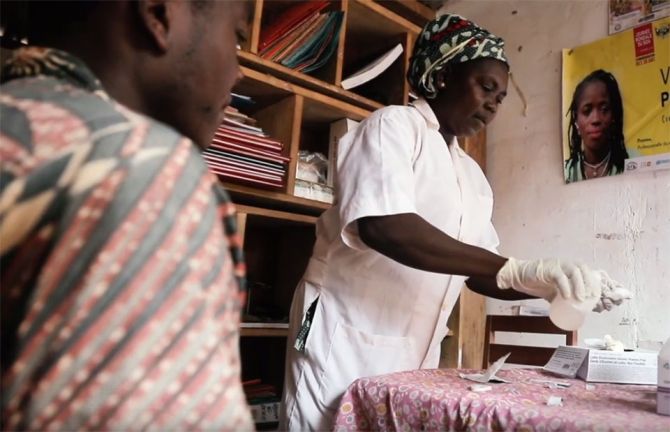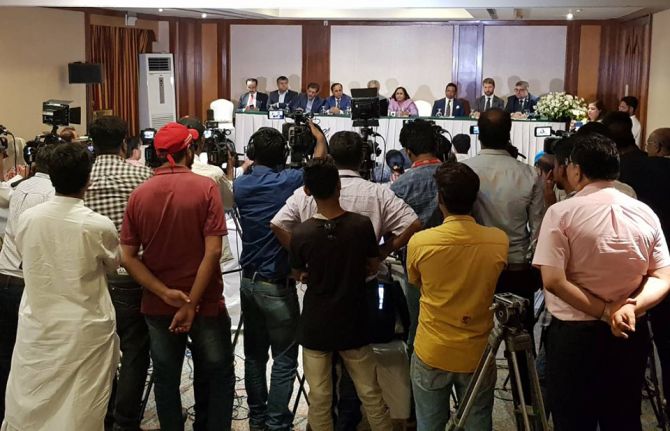
Feature Story
2011 Human Development Report: Health and development gains threatened by lack of equity and sustainability
02 November 2011
02 November 2011 02 November 2011
Understanding the links between sustainability and equality is critical, says the 2011 Human Development Report
Progress in health and development in the poorest countries is in serious danger if the world does not make a concerted effort to reduce inequities, protect the environment and promote sustainability. This is the stark warning highlighted in the 2011 Human Development Report, launched on Wednesday by the United Nations Development Programme (UNDP).
Sustainability and Equity: A Better Future for All, explores in great detail the relationship between health, education, income, gender disparities, sustainability and social inequalities. Significant progress cannot be achieved in one area without progress in all. If such gains are not attained, the least developed countries could see themselves diverging significantly from global patterns of development by 2050. The ideas expressed in the document are very much intended to provide a key focus of debate in the run up to the 2012 UN Conference on Sustainable Development (Rio+20).
As the UNDP Administrator Helen Clark states in the report’s foreword, understanding the links between sustainability and equality is critical, “if we are to expand human freedoms for current and future generations.” She adds, “The remarkable progress in human development over recent decades cannot continue without bold global steps to reduce both environmental risks and inequality.”
According to the Human Development Report, sustainability does not touch only on the environment but on the very way we choose to live our lives, with full awareness that our actions will have potentially profound consequences for coming generations.
A Better Future for All notes that although the majority of people across the globe are becoming healthier and living longer, sub-Saharan Africa has not seen the same decline in health inequality. This is especially the case in southern Africa which is still bearing the brunt of the HIV epidemic with adult prevalence exceeding 15 percent in several countries. The report highlights the need to address the social, educational and gender inequities to successfully respond to the AIDS epidemic.
The remarkable progress in human development over recent decades cannot continue without bold global steps to reduce both environmental risks and inequality.
Helen Clark, UNDP Administrator
Gender disparity, evidenced by a lack of access to reproductive health products and services for many of the world’s women, is also shown in the report to have a profound effect on health, environmental sustainability and poverty.
An expansion in reproductive health rights, health care and contraceptive access will not only benefit individual women and their families but could have a marked effect on slowing global population growth. According to the report, some 215 million women in developing countries have unmet family planning needs. However, in every country where such needs are met and women have comprehensive reproductive options, fertility rates are at, or below, replacement level.
The report concludes that it is possible to implement programmes which have an impact on sustainability and equity, with benefits for both people who are most disadvantaged and for the environment itself. Such programmes have sustainability and equality etched into policy and programme design and reserve a critical space for the voices of the most deeply affected.
UNDP has commissioned the editorially-independent Human Development Reports each year since 1990, when its Human Development Index (HDI), a composite measure of health, education and income, first challenged purely economic measures of national achievement and called for consistent global tracking of progress in overall living standards.



